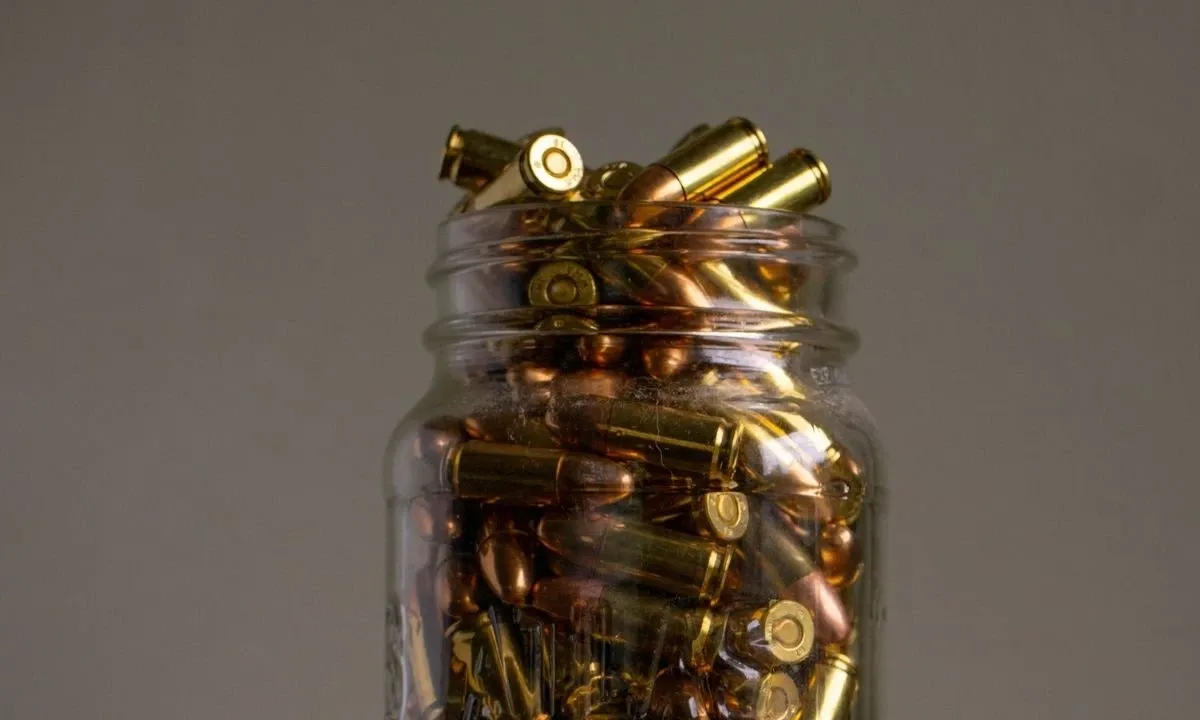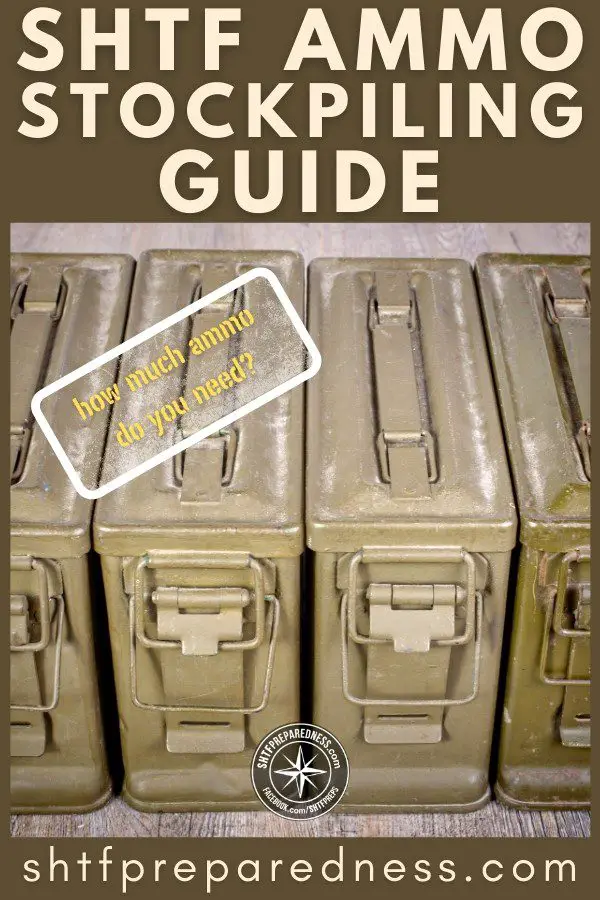Gun Storage Basics
When it comes to storing guns and ammunition, there are a few things you need to keep in mind to ensure safety. First, you should always store guns and ammunition in a cool, dry place. Second, you should make sure that guns and ammunition are stored separately. Finally, you should always keep guns and ammunition locked up and out of reach of children.

What Happens to Guns in Storage?
When it comes to guns and firearms, safety is of the utmost importance. Storing your guns properly is an essential part of gun ownership and responsible gun ownership. It’s important to ensure that you store your firearms in a safe, secure, and reliable storage unit.
However, it’s also important to know what happens to guns in storage. Whether you’re storing a firearm for an extended period of time, or just for a short-term solution, it’s important to know the potential risks associated with storing firearms.
One of the most common risks associated with storing guns is potential theft. Any time you store a firearm, it’s important that you take the necessary precautions to ensure that it won’t be stolen. This includes keeping the storage unit locked and secure, as well as regularly checking up on the unit to make sure it’s secure.
Another risk associated with storing firearms is potential deterioration. Firearms can be damaged if they’re not properly stored and maintained. This can lead to rust and other types of damage, which can reduce the value of the firearm. It’s important to make sure that you store firearms in a dry, climate-controlled environment to prevent rust.
Finally, there is the risk of potential degradation of the gun due to environmental conditions. Guns can be damaged if they’re stored in a humid environment or if they’re exposed to extreme temperatures. It’s important to make sure that you store firearms in a dry, climate-controlled environment to reduce the risk of deterioration.
By understanding the potential risks associated with storing guns, you can ensure that your firearms are stored in a safe and secure manner. It’s also important to make sure that you’re regularly checking up on the storage unit to make sure it’s secure and that the firearms are in good condition. By taking the necessary steps to protect your firearms, you can rest assured that your guns are in the best possible condition when you’re ready to use them.
How to Safely Store Ammunition?
Are you a gun enthusiast or a hunter who needs to store ammunition safely? If yes, then you’ve come to the right place.
Storing ammunition safely is one of the most important steps toward responsible gun ownership. It is important to follow the right steps to ensure the safety of yourself and your family.
Here are some tips to help you safely store your ammunition:
1. Invest in a lockable gun cabinet or safe – One of the best ways to store ammunition is to invest in a lockable gun cabinet or safe. This will ensure that your ammunition is kept away from children and other unauthorized individuals.
2. Store in a cool, dry place – It is important to store ammunition in a cool, dry place as extreme temperatures can damage the rounds. It’s best to store the ammunition in a place that is not exposed to direct sunlight.
3. Store away from combustible materials – It is important to make sure that ammunition is stored away from combustible materials such as lighters, matches, and gasoline.
4. Store in a locked container – If you are transporting ammunition, it is critical to store it in a locked container. This will ensure that the ammunition does not become exposed to the elements.
5. Handle with care – Ammunition should always be handled with care as any mishandling can cause a misfire. Be sure to keep your fingers away from the trigger and keep your ammunition away from any source of heat or strong vibration.
These are just a few tips to help you store your ammunition safely. By following these steps, you can ensure that your ammunition is kept away from children and unauthorized individuals, and is safe to use.
Gun Storage Supplies Checklist
As a gun owner, you have a responsibility to ensure that your firearms are stored safely and securely. Even if you don’t keep your firearms loaded, you must still keep them out of reach of children, pets, and unwanted visitors. To help you do this, we’ve put together a Gun Storage Supplies Checklist.
Before you purchase any supplies, it’s important to consider the type of gun or guns you own, as well as the size and weight of your firearms. This will help you determine what types of gun storage supplies you’ll need.
Here are a few must-have gun storage supplies:
1. Gun Cabinet – This is the most secure way to store multiple firearms. Gun cabinets are made of heavy-duty steel, and they typically come with locks and multiple shelves to organize your firearms.
2. Gun Safe – A gun safe is a great way to store handguns and long guns. Gun safes can typically hold up to 10 guns, and they offer fire and waterproof protection for your firearms.
3. Gun Lock – A gun lock is an inexpensive way to securely store firearms. Gun locks have a key or a combination, and they are designed to lock the firearm in place when not in use.
4. Gun Case – This is a great way to transport your firearms from one place to another. Gun cases are made of durable materials, and they come in various sizes to accommodate different types of firearms.
5. Gun Cleaning Kit – Proper maintenance and cleaning of your firearms are essential to ensure they last for years to come. A gun cleaning kit includes all the supplies you need to keep your firearms clean and in good working order.
Now that you know the basics of gun storage supplies, it’s time to start shopping! Remember to research the type of supplies you need and make sure they meet your specific needs. We hope this Gun Storage Supplies Checklist helps you find the right supplies to safely store your firearms.
unloaded guns should be stored in a locked gun safe
Guns should be unloaded and locked in a gun safe when not in use. For added safety, the gun safe should be kept in a location that is not accessible to children or other unauthorized individuals.
Ammunition should also be stored in a locked gun safe, or in a separate location that is not accessible to children or other unauthorized individuals. If you keep your ammunition in the same location as your guns, be sure to store it in a locked container that is clearly labeled as containing ammunition.
Ammunition should be stored in a locked gun safe or a locked ammunition cabinet
Ammunition should be stored in a locked gun safe or a locked ammunition cabinet. The ammunition should be stored in a dry, cool place. Do not store ammunition in the same place as your guns. It is also a good idea to store your ammunition in a different place than your guns.
Gun Safe Location
One of the most important aspects of gun safety is storing your firearms and ammunition properly. You want to make sure that your guns are not only inaccessible to children and criminals but also protected from fire and flood. Here are some tips on how to safely store your guns and ammunition.
Gun safes should be placed in a location that is not easily accessible to children or unauthorized adults
A gun safe should be placed in a location that is not easily accessible to children or unauthorized adults. The best location for a gun safe is usually in a basement or other out-of-the-way place. It is important to make sure that the gun safe cannot be easily moved or tipped over.
Gun safes should be placed in a location that is not easily accessible to burglars
A gun safe should be placed in a location that is not easily accessible to burglars. The best place for a gun safe is in a basement, closet, or other out-of-the-way location. The safe should also be bolted to the floor so that it cannot be easily removed.
Gun Safe Maintenance

Although gun safes are built to withstand a lot of abuse, they still need to be maintained in order to ensure they are functioning properly. There are a few things you can do to keep your gun safe in good condition, such as cleaning it regularly and checking the seals.
gun safe should be regularly inspected for signs of wear or damage
While most gun safes are designed to be durable and long-lasting, it’s important to regularly inspect your gun safe for signs of wear or damage. Over time, gun safes can become worn down by exposure to the elements or everyday use, which can make them less effective at protecting your firearms and ammunition.
To ensure that your gun safe is in top condition, it’s important to regularly inspect it for any signs of wear or damage. Here are a few things to look out for:
-Cracks or scratches in the exterior of the safe
-Dents or scratches in the interior of the safe
-Loose hinges or handles
-Warped doors or panels
If you notice any of these signs of wear, it’s important to take action to fix the problem as soon as possible. In some cases, you may be able to repair the damage yourself. However, if the damage is extensive, it may be necessary to replace the entire gun safe.
Gun safes should be regularly cleaned and lubricated

A gun safe should be regularly cleaned and lubricated to ensure that it functions properly and prevents rust. The following is a step-by-step guide on how to safely clean and lubricate a gun safe:
-Remove all guns and ammunition from the safe.
-Disconnect the power supply to the safe.
-Remove any shelving or other removable components from the safe.
-Using a soft cloth, dust all surfaces of the safe, including the inside of the door. Pay special attention to any cracks or crevices where dirt or debris may have accumulated.
-Using mild soap and water, clean all surfaces of the safe. Rinse with clean water and dry thoroughly with a soft cloth. Do not use harsh chemicals or cleaning agents on the safe as this could damage the finish or promote rusting.
-Once the safe is clean and dry, apply a thin layer of gun oil or silicone lubricant to all moving parts, such as hinges and locking mechanisms. Wipe away any excess lubricant with a clean cloth.
-Replace any shelving or other removable components in the safe.
-Reconnect the power supply to the safe.
